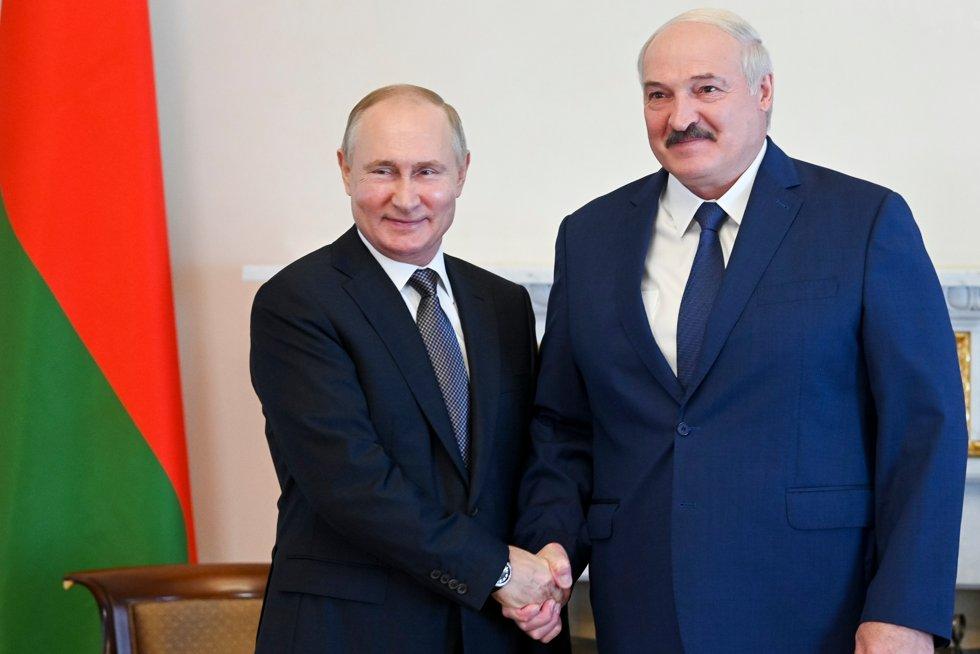Several Russian opposition leaders are currently serving long prison terms in Russia. The protests have subsided after the imprisoned regime critic Alexei Navalny’s anti-corruption foundation was classified as extremist, and several are afraid to comment critically on the authorities.
The same thing has happened in neighboring Belarus after hundreds of lawsuits were filed against protesters protesting against President Alexander Lukashenko’s regime.
But now they are going even further in their attacks on independent media and human rights organizations.
– Several organized actors have been accused of having played a planning role in what is called violent riots and of having financed unrest and violence, says chairman of the board Martin Uggla in Östgruppen. The organization works for democracy and human rights in Eastern Europe.
Team 29
Among those who have had problems is the website Komanda 29, consisting of lawyers and journalists. They have helped Russians accused of information crime and treason and defended, among other things, Navalny’s anti-corruption foundation FBK against the extremist stamp in April.
Now they themselves have fallen victim to the authorities’ offensive.
– This is in accordance with the recently published national security strategy, which focuses on information wars and how the West allegedly tries to undermine Russia, says research leader Carolina Cendil Pallin at the Swedish Research Agency (FOI).
Among other things, Komanda 29 has given instructions on how to behave during a search warrant in connection with arrests, and what to say during interrogation.
Now the page is gone.
Undesirable
On July 16, the site was blocked by Russian authorities after being linked to an “unwanted”, that is, a foreign organization. Only two days later, Komanda 29 announced that they were closing down.
Right now, there are 20 “unwanted organizations” in Russia, and Russian banks are being forced to freeze their accounts since they are seen as illegal. Participation can result in up to six years in prison and large fines.
– Now you can get a penalty for sharing posts from us. We do not want to expose our followers to it, nor do the members of the organization. Safety comes first, Komanda 29 lawyer Ivan Pavlov told the Meduza news site.
Draconian designation
The day before, the Russian publisher Proekts (“Project”)’s American publisher was also designated as “unwanted”, after searches and several arrests of their journalists.
The publisher is closing down its operations in Russia, but the editors have announced that they will continue to dig, but it is unclear in what form.
– The most draconian thing is to be designated as an “unwanted organization” because then you have no legal connection to the organization at all. This means, for example, that you cannot sign a lease or have your own income, says Vendil Pallin.
The summit
At least 51 searches were carried out in Belarus on July 14, and at least 20 arrests of journalists and human rights activists in one day.
All this happened just a day after Belarus’s authoritarian leader Alexander Lukashenko met with his Russian counterpart Vladimir Putin for the fourth time this year.
During the meeting, Lukashenko claimed that NGOs and “Western media” are fighting for democracy, but have been shown to support violent riots in Belarus.
Both countries have tried to remove all regime-critical voices from the public debate.
– Russia has tried to reduce the possibility of public criticism ahead of this autumn’s elections, Uggla explains.
The situation is similar in Belarus, where persecution has been going on since the spring of 2020, when the election campaign for the presidential election began.
The authorities have now gone after the largest human rights organization Vjasna.
– Dissatisfaction remains and the government is afraid.
Parallels
A clear parallel between Russia and Belarus is that they are both trying to stifle economic support and international contacts to the democracy movements in the country.
– They go after the media and human rights organizations that stick out their chin at a very early stage, because they are the ones who in the future can play a mobilizing role, says Uggla.
The organizations document abuses, which are also the basis for, among other things, the EU’s sanctions policy.
– Then there will also be less attention internationally if you succeed before they have had time to become too strong.
– .


